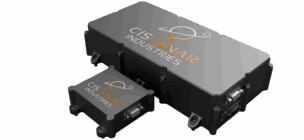The next era of the space economy will involve servicing and life extension, if the players in the industry today have it their way, and that will require extreme spacecraft maneuverability. Portal Space Systems believes it can help realize this vision by making it easier and much faster to move spacecraft around in orbit.
Portal officially emerged from stealth today toting $3M in government contracts and a novel, speedy propulsion system for its Supernova spacecraft design.
The story so far: Jeff Thornburg, the new venture’s CEO, is the engineering exec responsible for SpaceX’s Raptor engine architecture. Thornburg has spent his career tackling the tough problems in transportation that could enable the growth of the space sector. Now that rapidly reusable rockets are a reality, he told Payload that efficient in-space maneuverability is the next big challenge the industry has to surmount.
“The biggest opportunity I saw was the fact that both commercial and DoD space assets are not very maneuverable, meaning they don’t really carry enough propulsion capability to do more than just stay in their existing orbit,” Thornburg said.
Going Supernova: Portal’s first spacecraft concept, Supernova, is a 500 kg payload-agnostic platform that can maneuver quickly within or between orbits. The company is advertising transfers from LEO to GEO within a few hours, along with the ability to hop between orbits multiple times during its lifetime.
- The key to that speed is the company’s high-thrust solar-thermal propulsion system designed to offer 6 km/s delta-v for Supernova.
- The company is targeting late 2025/early 2026 for the first flight demo.
Gaining traction: Portal has secured $3M in DoD contracts since it was founded in 2021, including a project through Space Systems Command’s Space Safari office and a SpaceWERX contract.
The Supernovas aren’t the only thing that need to move fast. Portal is aware of a ticking clock from the DoD, which is looking for a working, deployable solution to its maneuverability needs.
“Our DoD customers have said they have real needs that really need to get met by 2026,” Thornburg said. “So…how can we accelerate this capability that the warfighter says they want as fast as possible to meet some of the needs that they’re looking at here in the next couple of years?”
The company also raised a ~$1M seed round in November 2021 and has collected a handful of strategic investors along the way, but is aiming to fund most of the company’s R&D through customer contracts.
Growth spurt: For most of the past three years, Portal’s team has been small—really, just Thornburg and his cofounders Ian Vorbach and Prashaanth Ravindran. There are ~25 employees supporting Portal now, per Thornburg, and the company’s plans for growth over the next year are aggressive. The plan is to have 50 people on board in the next few months, 100 in the next 12-18 months, and up to 200 within the next two years.
“What we’re trying to do is put the pieces of our business together,” Thornburg said. “As we’re successful with flight demonstration, or moving into manufacturing and production of our spacecraft to serve customer needs, because we see multiple Supernovas working in concert with each other on orbit to help service those customer requirements.”




